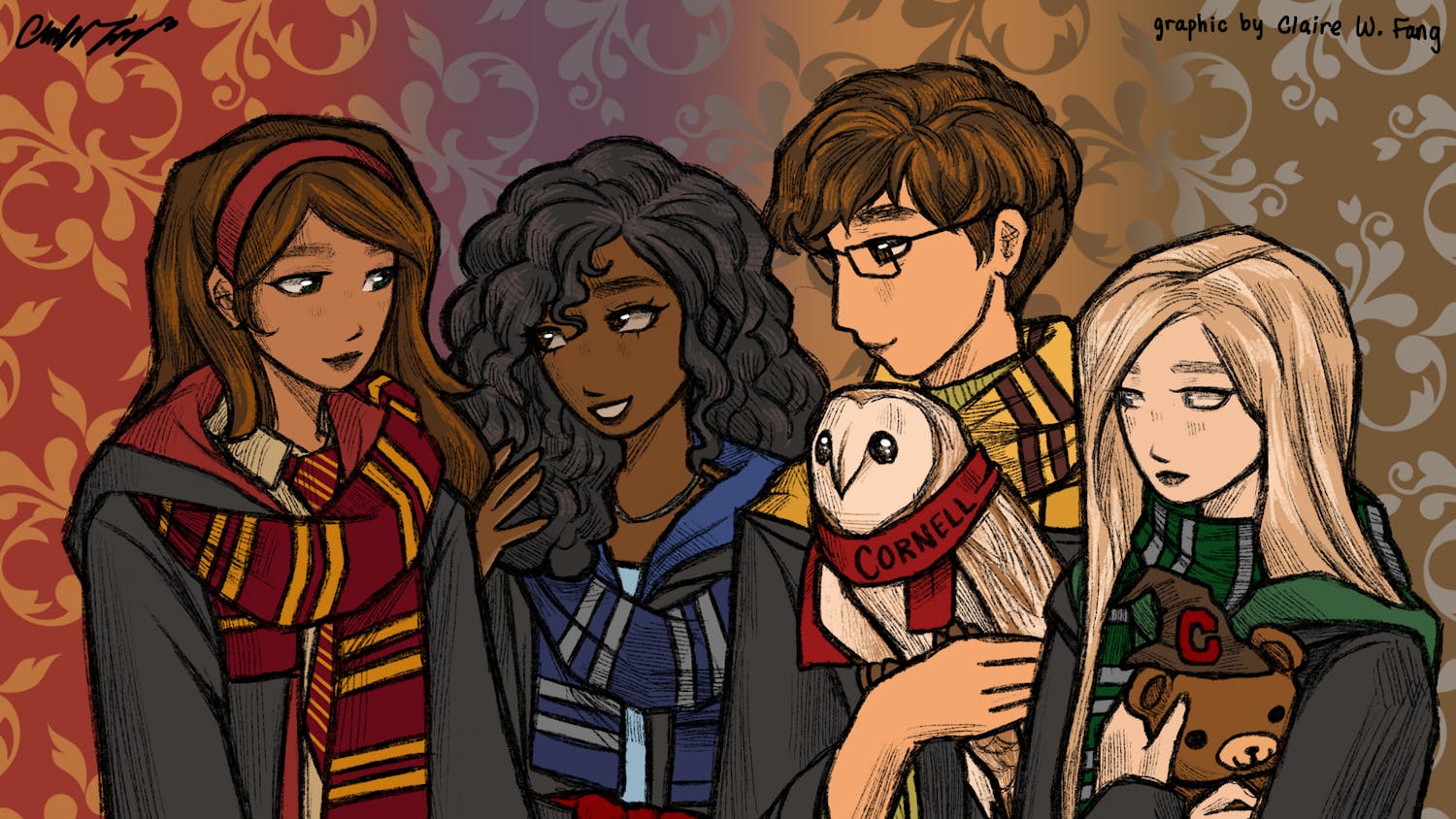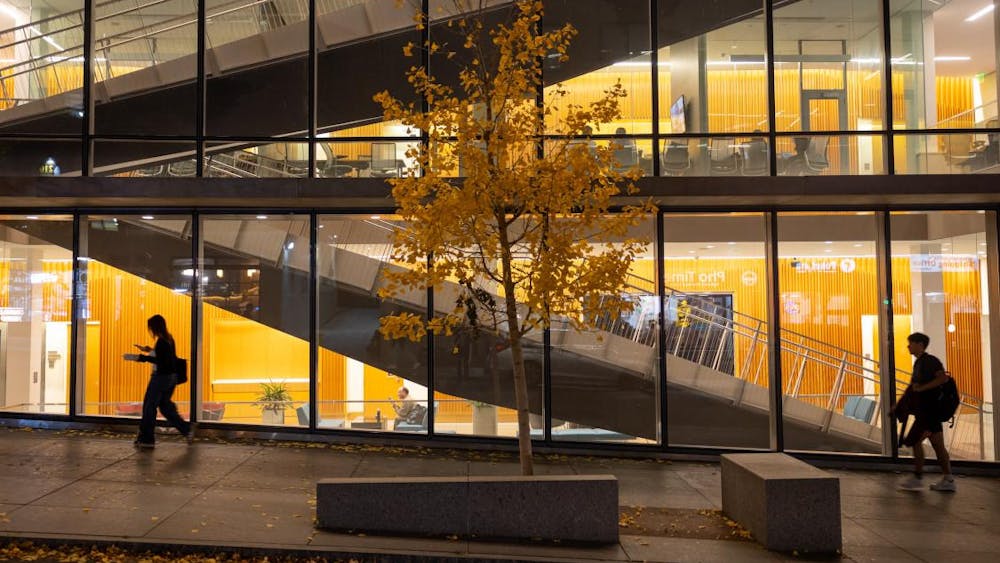“For the women who are afraid to take up space.”
This dedication spans the screen moments before the word “MANSPREAD” appears in bright red. At that instant, I knew this short film would be something more. I interviewed Tiana Michele Duarte-Kargbo, the director, producer and screenwriter behind Manspread on how this story came to be and where it’s going.
Manspread did not start as a film. As a photographer, Duarte-Karbgo has been working on her business for the last five years. She graduated in 2020 from the University of Southern Mississippi with a dance degree, moved to New York and went behind the camera. Her photo series, “You Should Smile More,” was the precursor to the potential photo series “Manspread,” when her friend proposed a short film instead. Duarte-Kargbo took the opportunity and ran with it.
There are two halves to this film. In the first, we see a parallel universe where men are the ones experiencing a woman manspreading. Yet, there is no visual switch in roles except for the characters’ actions. In Duarte-Kargbo’s original photo series, she gender-swapped the clothes, but in Manspread, she explained that the first half is supposed to “feel out of place” so she kept traditional attire; she felt people would focus too much on the clothes and not get the idea if she did the swap.
The second half of Manspread solidifies it as an exceptional short film. It accomplishes so much and attacks multiple perspectives, but also recognizes a shared experience. The parallel universe finally cracks and we return to viewing our current world: women make space for men who manspread on the train. As we move through life and work, this form of public transportation symbolizes how in every space women are conditioned to move over for men, and men do not even consider that. I asked her, “How do you balance making someone feel seen and making someone feel conscious of their actions?” Duarte-Kargbo explained, “The movie is for women a hundred percent. I made it for a past [and current] version of myself. I made it for everyone that I know, every woman I've ever met, who feels like she needs to fit into any certain space a certain way. it's all from narratives we've received from the patriarchy. Everyone suffers at the hands of the patriarchy. I wanted women to see themselves, but then I also wanted men to see themselves too and see what that feels like.”
She brought in a quote attributed to Cesar A. Cruz: “Art should comfort the disturbed and disturb the comfortable.” Duarte-Kargbo explained how accurately it relates to Manspread, “[The film] is supposed to make people uncomfortable who are too comfortable in the way that we function right now as a society. The people who are already uncomfortable, who are living in that discomfort every day, they get to see that played back for them and feel validated.”
This is the success of Manspread. While the film depicts the female experience of shrinking oneself for others, it also confronts female complicity. The comments under the film demonstrate this. One user stated, “At first when I was seeing the overly sexualized advertisements in the beginning, I thought that it was unrealistic to see something like that but the change to the end felt too normal. I’m so disgusted that as a woman, I’ve always just been used to these things without realizing. Really amazing film.”
Even though art can comfort the disturbed, it can also disturb everyone. Manspread disturbs the female perspective because women may become so conditioned to this treatment that it’s uncomfortable to see men experience it but once it’s women again, it’s normal. And that thought in the second half, “Oh, this is normal,” is shocking.
Finally, I wondered where Manspread would go. Yes, we can confront social issues through art, but what’s next? “Do you see a world without this idea of manspreading?” I asked. Duarte-Kargbo answered:
“I feel like it takes two to tango in this scenario where I want women to be more conscious. That's what started it for me, I was on the train, sitting with my legs all scrunched up, and the two guys sitting next to me were just like way out here,” Duarte-Kargbo stretched her arms out after squeezing them by her side, “and I was like, why am I the one compromising right now? It takes flipping that switch in your head and [thinking], ‘I'm allowed to take up space too,’ but then it also requires men [thinking], ‘How much space am I actually taking up right now?’ In the same way that it's not conscious for women that we've been trained and told our entire lives, ‘make yourself smaller, fit into what people are asking you of’ I think it's subconscious for [men] too. They've never been told not to. It takes talking about it more, because the more you talk about it, the more aware you are of it.”
What’s so interesting is, there’s no character in Manspread that’s the “bad guy.” Duarte-Kargbo said, “It's really the ideology that rests over all of us. The patriarchy is the bad guy, and the patriarchy lives within all of us. All of us have a little bit of the bad guy in there.”
Manspread does so much in just six minutes. It confronts how men and women interact, who takes up space and who compromises. It attacks the watcher in their complicity, no matter their identity. And it welcomes the idea of no “bad guy.” Although there’s an issue being discussed, there’s no character that represents the issue; rather, the issue is perpetuated by each character. It is through art that we may contemplate and understand better the issues and concerns impacting us every day. I applaud Manspread and Tiana Michele Duarte-Kargbo and by extension, its audience, for entering this discussion. I look forward to more films by Duarte-Kargbo and I look forward to where else this conversation is going; It should and will take up space, just as we should.
Sophia Romanov Imber is a freshman in the College of Arts and Sciences. She can be reached at sromanovimber@cornellsun.com.
Sophia Romanov Imber is a member of the Class of 2028 in the College of Arts and Sciences. She is an assistant arts editor of the 143rd Editorial Board. She can be reached at sromanovimber@cornellsun.com.











